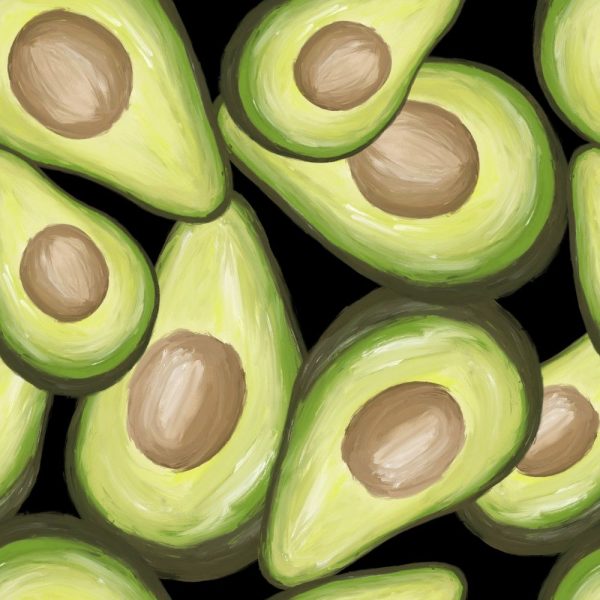Vegan Diet: A Comprehensive Guide to a Plant-Based Lifestyle for Optimal Health

Introduction
The vegan diet has gained significant popularity in recent years as more individuals are embracing a plant-based lifestyle for ethical, environmental, and health reasons. In this comprehensive article, we will delve into the intricacies of the vegan diet, discussing its various types, popularity, and benefits. Additionally, we will explore quantitative measurements, differences between vegan diets, as well as a historical overview of the advantages and disadvantages associated with different approaches.
Overview of Vegan Diet

A vegan diet is a type of vegetarian diet that excludes all animal-derived products, including meat, fish, dairy, eggs, and honey. It emphasizes the consumption of plant-based foods, such as fruits, vegetables, legumes, grains, nuts, and seeds. By avoiding animal products, vegans aim to minimize their impact on animal welfare, reduce their carbon footprint, and improve their overall health.
Presentation of Vegan Diet Types
There are various types of vegan diets that individuals can choose from based on their personal preferences and nutritional needs. Some popular vegan diets include:
1. Whole Foods Vegan Diet: This approach focuses on consuming minimally processed plant-based foods in their most natural and unrefined forms. It emphasizes whole grains, fruits, vegetables, legumes, nuts, and seeds.
2. Raw Vegan Diet: Raw vegans primarily consume uncooked and unprocessed plant foods. The diet typically consists of fruits, vegetables, sprouted grains, nuts, and seeds. Cooking methods such as steaming or dehydrating may be used at lower temperatures to maintain nutrient integrity.
3. Junk Food Vegan Diet: This type of veganism involves the consumption of vegan-friendly processed and packaged foods, such as vegan burgers, fries, and desserts. While it satisfies cravings for familiar comfort foods, it may lack proper nutrients due to the high quantity of processed ingredients.
Quantitative Measurements of Vegan Diet
Numerous studies have explored the impact of a vegan diet on various health markers. These quantitative measurements provide insights into the potential benefits of adopting a plant-based lifestyle. Research has shown that vegans tend to have:
1. Lower Body Mass Index (BMI): Studies indicate that vegans generally have a lower BMI compared to non-vegans, which can contribute to a reduced risk of obesity-related health conditions.
2. Reduced Risk of Chronic Diseases: The vegan diet has been associated with a decreased risk of developing chronic diseases, including cardiovascular disease, type 2 diabetes, and certain types of cancer.
3. Improved Nutrient Intake: A well-planned vegan diet can provide adequate amounts of essential nutrients, such as fiber, antioxidants, vitamins, and minerals. However, attention must be paid to specific nutrients like vitamin B12, iron, calcium, and omega-3 fatty acids.
Discussion on Differences Between Vegan Diets
While all vegan diets exclude animal products, there can be variations in individual approaches. These differences may stem from cultural, geographical, or personal preferences. Some variations include:
1. High-Carb vs. Low-Carb: Some vegans focus on consuming high-carbohydrate foods, such as grains and fruits, while others opt for low-carbohydrate options like leafy greens, nuts, and seeds.
2. High-Fat vs. Low-Fat: Vegan diets can also vary in their fat intake. Some individuals consume higher amounts of healthy fats from sources like avocados, nuts, and seeds, while others adopt a lower-fat approach.
3. Locally Sourced vs. Imported Produce: Some vegans prioritize consuming locally sourced produce to reduce carbon emissions associated with long-distance transportation, while others may choose to include imported ingredients for variety.
Historical Overview of Vegan Diets’ Pros and Cons
Throughout history, vegan diets have faced both support and criticism. Advantages historically associated with vegan diets include:
1. Ethical Considerations: Vegan diets align with the principles of animal rights, advocating for the welfare and fair treatment of animals.
2. Environmental Sustainability: By reducing reliance on animal agriculture, vegan diets help alleviate the environmental burden caused by deforestation, greenhouse gas emissions, and water pollution.
On the other hand, some perceived disadvantages of vegan diets historically include:
1. Nutrient Deficiencies: Concerns have been raised about potential deficiencies in certain nutrients like vitamin B12, iron, calcium, and omega-3 fatty acids due to the exclusion of animal products.
2. Social Challenges: In the past, finding suitable vegan options in social settings or during travel could be challenging, leading to potential social isolation or limited food choices.
[INSERT VIDEO HERE Related to vegan diet benefits or recipe ideas]
Conclusion
In conclusion, the vegan diet offers a diverse range of options for individuals seeking to embrace a plant-based lifestyle. With its numerous health benefits, reduced environmental impact, and ethical considerations, the vegan diet provides a compelling choice for those looking to improve their well-being while making a positive impact on the planet. By understanding the different types of vegan diets, considering quantitative measurements, and acknowledging historical pros and cons, individuals can make informed choices that align with their personal goals and values. Embracing a vegan diet has the potential to transform lives and contribute to a sustainable future for all.
FAQ
What are the popular types of vegan diets?
What are the potential health benefits of a vegan diet?
What is a vegan diet?
Fler nyheter
Behandlingshem en väg till trygghet, struktur och förändring
Introduction The vegan diet has gained significant popularity in recent years as more individuals are embracing a plant-based lifestyle for ethical, environmental, and health reasons. In this comprehensive article, we will delve into the intricacies ...
03 februari 2026
Kiropraktor köping vägledning till bättre rörelse och mindre smärta
Introduction The vegan diet has gained significant popularity in recent years as more individuals are embracing a plant-based lifestyle for ethical, environmental, and health reasons. In this comprehensive article, we will delve into the intricacies ...
01 februari 2026
Kiropraktor i Täby – när ryggen säger ifrån
Introduction The vegan diet has gained significant popularity in recent years as more individuals are embracing a plant-based lifestyle for ethical, environmental, and health reasons. In this comprehensive article, we will delve into the intricacies ...
05 januari 2026
Homeopati behandling: en helhetssyn på hälsa
Introduction The vegan diet has gained significant popularity in recent years as more individuals are embracing a plant-based lifestyle for ethical, environmental, and health reasons. In this comprehensive article, we will delve into the intricacies ...
05 januari 2026











